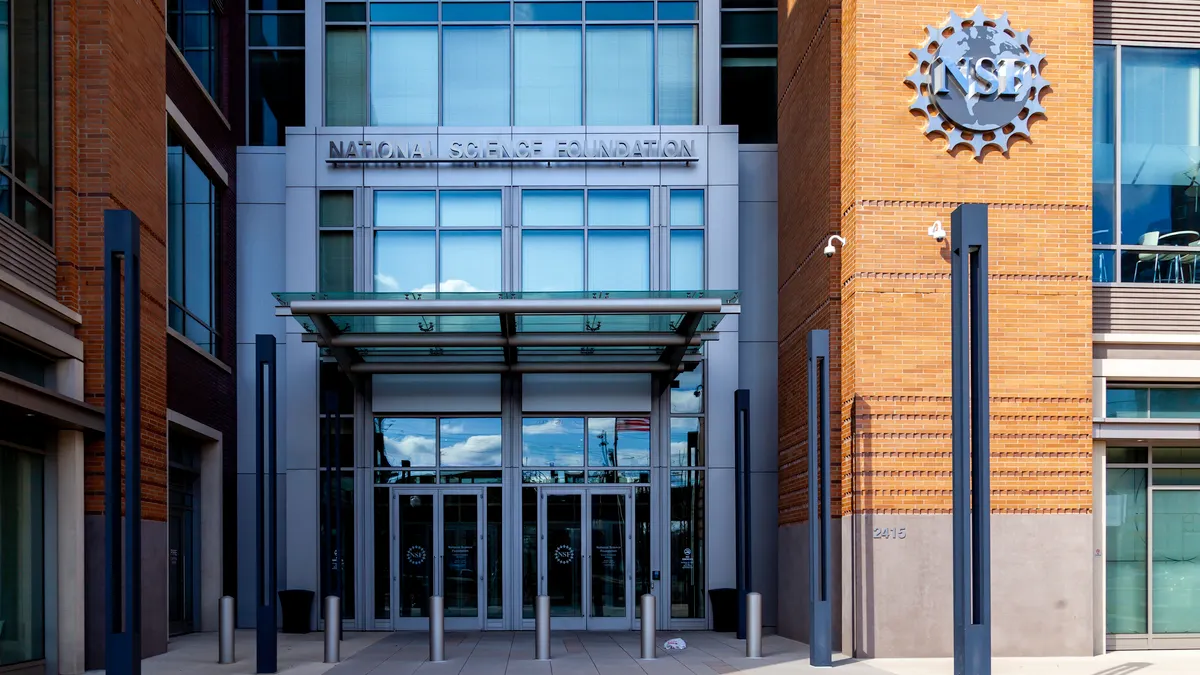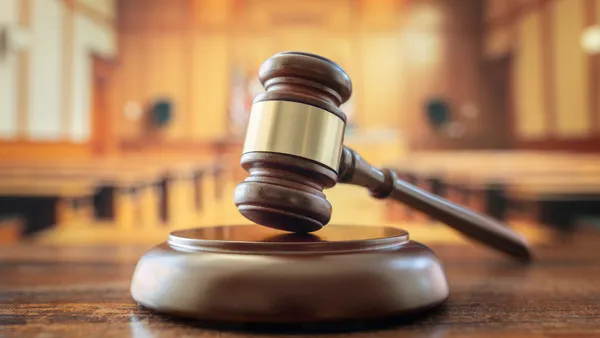Dive Brief:
- A federal judge on Wednesday declined to restore more than $1 billion in research grants cut by the National Science Foundation over research related to diversity, equity and inclusion while a lawsuit against the agency goes forward.
- In the ruling, U.S. District Judge Jia Cobb concluded that the court didn’t have the jurisdiction to temporarily restore the grants and that plaintiffs failed to show they would experience "irreparable harm" from the agency’s new anti-DEI policies while the case proceeds.
- Cobb cited in part a recent U.S. Supreme Court ruling that universities and researchers facing mass federal agency cuts must pursue their monetary claims in a separate federal court that handles economic and contractual disputes with the U.S. government.
Dive Insight:
In April, NSF issued a new statement of priorities asserting that grant awards “should not preference some groups at the expense of others, or directly/indirectly exclude individuals or groups.”
“Research projects with more narrow impact limited to subgroups of people based on protected class or characteristics do not effectuate NSF priorities,” the agency added. NSF also noted grants related to environmental justice and the study of disinformation would also fall short of the agency’s objectives under the Trump administration.
Mass cancellations of previously awarded grants followed. In June, a group of unions and higher education associations — including the American Association of Colleges and Universities and the American Association of University Professors — sued NSF.
They counted 1,600 canceled grants amounting to over $1 billion funding, including many that aimed at broadening participation of women, underrepresented groups and those with disabilities in scientific and technical fields. Commonly appearing typos and boilerplate language in many of the termination notices to researchers showed the mass, automatic nature of the cancellations.
“NSF afforded recipients of terminated grants no advance notice, and indeed no process whatsoever, before the terminations,” the complaint stated.
Plaintiffs argued that NSF’s anti-DEI directive and cancellations violated the law as well as the constitutional principles of separation of powers and due process. Among other things, plaintiffs said the grants carried out NSF’s “statutory directive to support an increase in the participation of underrepresented populations in STEM fields, including women, minorities, and people with disabilities.”
In her ruling Wednesday, Cobb, a Biden appointee, wrote that her court likely had jurisdiction to decide if NSF's anti-DEI policies could be applied to future grants. But retroactively restoring the grants that had been canceled, as the plaintiffs had requested, would likely need to be handled by the U.S. Court of Federal Claims.
Among other precedents, she cited last month’s Supreme Court ruling in a case against the National Institutes of Health over similar DEI-related grant cancellations at that agency. While the top court declined to block a district court's order that struck down the NIH's anti-DEI guidance, it said the plaintiffs must seek relief for the canceled grants in federal claims court.
Critics of the decision — including justices in the liberal minority — said that the ruling would add new complications and delays while research projects and laboratories suffer.
Cobb further concluded that plaintiffs’ argument that their constitutional rights were violated was unlikely to succeed, finding that their claims were instead statutory in nature. There again Cobb cited a recent case against the Trump administration, this one brought by the Global Health Council over mass cuts at the U.S. Agency for International Development.
Democracy Forward, a nonprofit legal organization representing plaintiffs in the lawsuit, called Cobb’s decision not to block NSF’s terminations disappointing and “a loss for American innovation and excellence.”
“This case is not over and we are eager to defend the important role the NSF plays in the daily lives of Americans,” the group said in a statement.













